In The Divided States of America, You Can’t Please Everyone
Pride Month might be over, but the ramifications for some companies are still unfolding.
And one company still dealing with their June choices is of special interest to Southern Baptists.
While major corporations reel from consumer backlash against their LGBTQ vanguardism, heartland stalwarts like Cracker Barrel are behind the times. The recent outcry over Cracker Barrel’s sponsorship of the 2024 Nashville Pride festival shows that there is no safe, by-the-textbook corporate response to the moral revolution. In other words, companies have to pick a side.
A Muted Rainbow Hue in 2024
Before getting into what happened with Cracker Barrel, it’s important to consider how public support for this in-your-face normalization of perversity (see: San Fransisco pride parades) has been waning. Long-beleaguered social conservatives have been taking heart in 2024. The moral arc of history—or the slouch toward Gomorrah, depending on how you look at it—shows signs of exhaustion.
Corporate pride is sputtering. As June rolled around this year, Forbes and other outlets bemoaned a lackadaisical pride month in which major American brands like Bud Light, Nike, Target, and North Face took a much quieter approach, apparently having learned a lesson from recent boycotts. Being in the vanguard of the moral revolution can hurt your bottom line. A reported eighteen percent of corporations (and thirty percent of consumer staple products companies) scaled down their 2024 Pride Month plans due to conservative pressure.
The LGBTQ vanguard has been on the defensive in the political realm, too, as waves of supposed “anti-LGBTQ” legislation sweep red states. The ACLU currently purports to be tracking 523 such bills for the 2024 legislative cycle, including bills protecting women’s sports, restricting the gender transition of minors, restricting gender/queer theory in public school curricula and libraries, requiring greater parental disclosure for children transitioning at school, and many other similar steps.
The slowing momentum behind the LGBTQ revolution has shown up in public opinion polling, as both Gallup (in 2023) and PRRI (in 2024) saw significant drops in support for same-sex marriage and enhanced treatment of LGBTQers as a protected class. The drop in support for LGBTQ rights was starkest amongst GOP voters, suggesting the possibility that the LGBTQ revolution that triumphed in Obergefell may, like abortion after Roe, be fated to fierce partisan contestation in the ensuing decades.
What is a corporation to do in these circumstances? On one hand, you have the Human Rights Campaign, and on the other, Matt Walsh, Moms for Liberty, and Southern Baptists. Conservative activists, clearly the ascendant faction, have tasted blood and are emboldened as they see the first signs of weakness in a decades-long queer onslaught.
A CEO has three theoretical options: 1) please your progressive customers by making a big show of Pride Month, 2) please your conservative customers by ignoring the HRC and Pride Month altogether, or 3) attempt to chart a middle course that makes no one happy but will (you hope!) keep you out of the news by, for example, quietly adopting HRC-promulgated recommendations.
This last option emerged as a corporate favorite in the wake of 2023, aided by LGTBQ activist complaints that too many companies “rainbow wash,” making risky (but ultimately low impact) symbolic statements instead of taking meaningful steps in internal policies and corporate philanthropy.
If corporations were as rigorous about profit maximization as we suppose them to be, we would see a roughly representative spread in approaches. And the Southern standard Cracker Barrel is exactly the sort of brand we might expect to aim to please conservative consumers.
Except they didn’t.
Cracker Barrel Chose Poorly
Headquartered in Lebanon, TN (a deep red, working-class suburb of Nashville), Cracker Barrel’s footprint is weighted toward the Southeast and Midwest. Its restaurants tend to appear off of interstate exits in remote suburbs and ex-burbs, and unlike down-market competitors such as Waffle House or IHOP, they are not heavily represented in city centers.
For years, Cracker Barrel has been a staple “Sunday lunch” option for many hungry churchgoers, Southern Baptists not excluded. In fact, Southern Baptists are no doubt a key demographic of their consumer base.
Most readers probably have the impression that Cracker Barrel customers are generally conservative. Indeed, as David Wasserman argued in the Washington Post after the 2012 election, the heuristic of Cracker Barrel vs. Whole Foods prevalence provides an almost perfect mathematical predictor for how various locales vote. Cracker Barrel’s footprint even bespeaks a customer base that is significantly more conservative than the famously Baptist Chick-fil-A.
Nonetheless, Cracker Barrel foolishly attempted to take the middle road on LGBTQ issues this year. After igniting a firestorm over rainbow flags draped on rocking chairs last year, it has wisely chosen to be less consumer-facing in its Pride efforts. And yet, Cracker Barrel’s corporate sponsorship of Nashville Pride this year, a move almost certainly responsive to the HRC’s scorecard, reveals an ongoing commitment to placating the Corporate Equality Index gods.
But Cracker Barrel is mistaken if it thinks its middle course is without risk. The symbolism is still too jarring. The after-church brunch spot—an icon of heartland America—forsakes its deep red American customers, many of whom aren’t just conservatives but Christians, to sponsor a deep blue city’s Pride festival, replete with Nashville’s first commissioned rainbow flag crosswalk. While the people of Tennessee (through their democratically elected representatives) ban the rainbow flag in schools, Cracker Barrel joins a small mob of leather-clad discontents to rage against the dying of the light.
Even if we grant that the risk of a mass Cracker Barrel boycott is low, what exactly does Cracker Barrel expect to gain? What pent-up market demand does the franchise expect to unleash with its shiny Corporate Equality Index score?
The Revolution Will Force Us All to Pick a Side
The conventional wisdom used to be that the sexual and moral revolution would continue inexorably. No matter where your brand is situated, you should keep the HRC happy to avoid public shaming and to expand your market share. That thesis is being proven false, and, as is often the case, Cracker Barrel and other smaller firms may be the last to know.
But all this underscores the deeper challenge. C-Suites and boards are deeply reliant on conventional wisdom, but you will scan the pages of Harvard Business Review in vain, looking for any conventional wisdom that applies to brands that primarily serve heartland Americans. When it comes to the HRC vs. the SBC, companies cannot split the baby and expect to come out on top.
Consequently, we can expect similarly dumb corporate decisions to continue until the reality—social conservatives and Christian consumers are not going away—becomes too obvious to ignore. By then, ambitious executives of heartland firms will realize that a crown lies in the gutter, waiting to be seized by the brands that know where their biscuits are buttered.
-

Josh Abbotoy is the Executive Director of American Reformer and Contributing Scholar at The Center for Baptist Leadership. A seasoned private equity lawyer by background, Josh is a lifelong Southern Baptist with an M.A. in Medieval and Byzantine Studies from the Catholic University of America and a J.D. from Harvard Law School. His writing has appeared in American Reformer, the American Mind, and the Federalist, and more.

